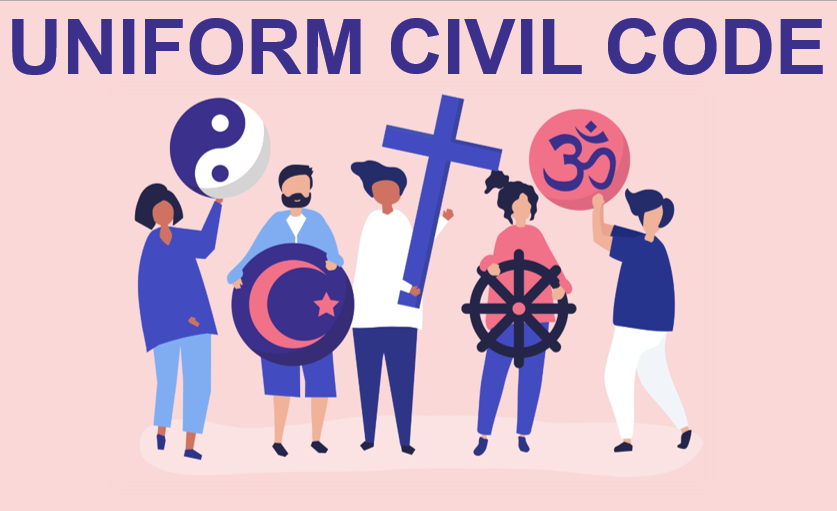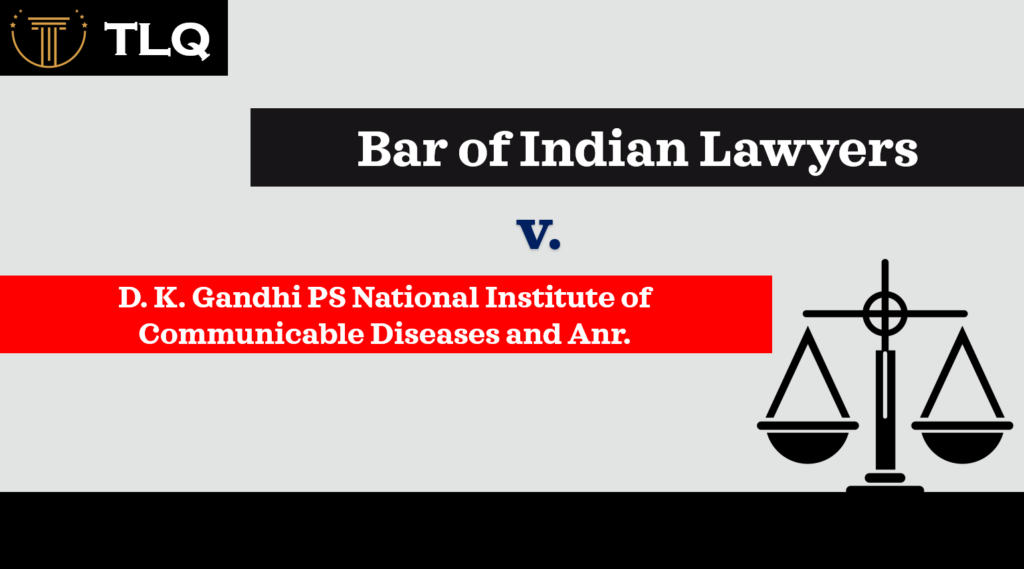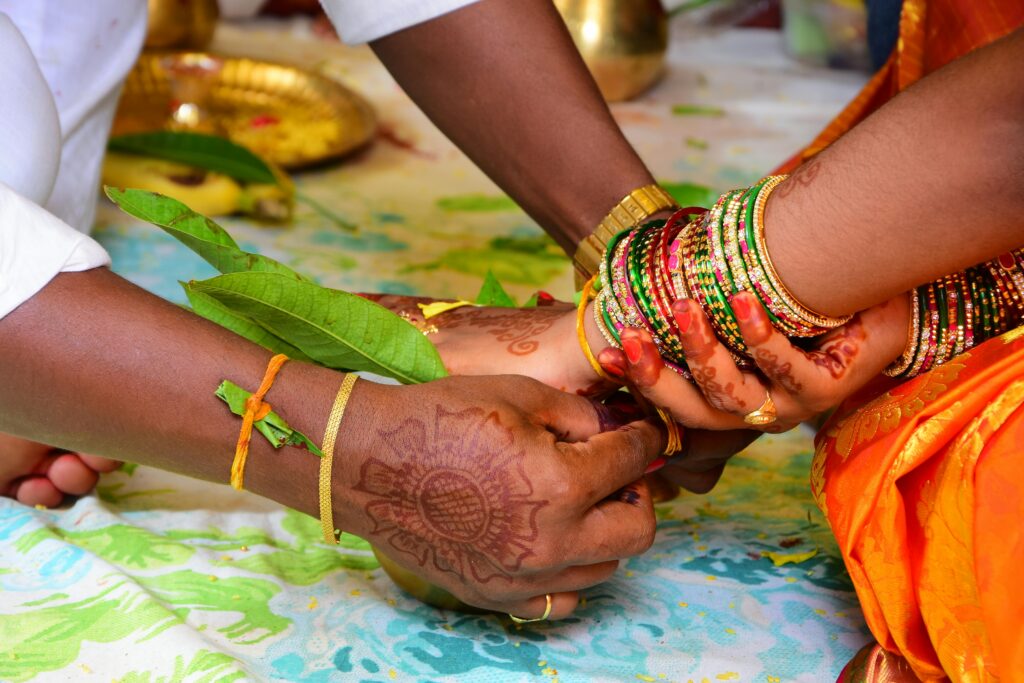Published On: 5th September, 2024
Authored By: Pradnya Rahul Bankar
RTMNU's Dr. Ambedkar College of Law, Nagpur
Abstract
The guardianship laws under the personal laws are being compared in this article. The Guardianship has greatly aided a child’s development. The protection and welfare of the child is the primary goal that needs to be attended to. This study aims to clearly understand the guardianship process under Hindu, Muslim, Christian, and Parsi law by analyzing the conditions and requirements of guardianship that apply to the legal system. Below is the division of this analysis: Christian, Muslim, Hindu, and Parsi guardianship laws. The intricate details of custody disputes within joint custody are the subsequent topic of this article. We set the scene for the occurrence and importance of these disputes in the introduction, as well as the main goals of our study. The following section explores the legal background, looking at the meaning and application of joint custody as well as the laws defining parental rights. The methods used to resolve custody disputes—such as court proceedings, mediation, the involvement of legal experts, and guardians ad litem—are another important topic covered. Which legal framework best serves the interests of children?
Introduction
The term “minor” refers to an individual who, as per the Indian Majority Act, 1875 (9 of 1875), is deemed not to have reached the age of majority. When a minor child is in the legal custody of someone other than their parents, the situation is referred to as guardianship. This agreement only applies to those under the age of eighteen, as minors are regarded as intellectually and physically immature and require the supervision, care, and protection of an adult.
The definition of a guardian, according to the Guardians and Wards Act, is “a person having the care of the person of a minor or his property, or of both his person and his property.” Although the person with the legal right and duty to arrange a minor’s marriage can be considered a guardian for that specific purpose, the Act does not explicitly address marriage arrangements. A guardian holds authority over the child, with the right to make all decisions concerning the child, and assumes legal responsibility for their well-being.
Historical Background
In the past, the father was regarded as the only guardian of the child’s person and belongings under common law. It was believed that the father had complete control over all facets of the child’s life, including care, education, behaviour, and religion; even the courts declined to get involved. The courts started to acknowledge mothers’ claims, if not rights, to child custody when divorce became an option and they established their own separate legal identities and places of residence. Fathers’ rights persisted despite many laws, starting with the Infant Custody Act of Great Britain in 1839; which gave mothers the right to request custody of minor children, the rights of the father continued to prevail.
In English law, paternal authority over children was dismantled through both judicial decisions and legislation. The focus shifted from paternal rights to child welfare, with the British Parliament granting equal legal status to both the father and mother in determining guardianship and custody. The Custody of Infants Act of 1873 allowed mothers to have custody until the child turned sixteen, and the Guardianship of Infants Act of 1886 recognized equal rights of mothers over custody, access, and the appointment of testamentary guardians. The Guardianship of Minors Act of 1973 granted the same rights to the mother as common law, allowing her to exercise these rights without the father’s consent.
Guardianship Laws in India
1. Hindu Law
The Hindu Minority and Guardianship Act, of 1956, describes Hindu law concerning the guardianship of a minor child. A minor is defined as an individual who has not attained the age of eighteen as per Section 4(a) of the Act. A guardian is defined in Section 4(b) as an individual who is in charge of the child’s upbringing, property, or both. The Act acknowledges three different kinds of guardians: court-appointed guardians, testamentary guardians, and natural guardians.
In legal precedents of it was established that even if the father lives separately from the child, he remains the guardian. The mother is considered the natural guardian for children under the age of 5 years but in E.M. Nadar v. Shri Haran (1992), cases of Smt. Geeta Hariharan v. Reserve Bank of India (1999), due to financial constraints on the father, the mother may be appointed as the natural guardian instead.
- Court-Appointed Guardians
In cases of insufficient or disputed natural guardianship, the court can appoint a certified guardian under the Guardians and Wards Act 1890, considering factors such as the child’s best interests, financial status, caregiving ability, and personal character.
- Testamentary Guardians
Testamentary guardians, appointed through a will by the natural guardian, are recognized (Section 9). If the mother survives, she becomes the guardian, rendering the father’s will ineffective (Section 9(2)).
- Natural Guardians
According to the Hindu Minority and Guardianship Act, both the mother and father are considered natural guardians. However, the court has the authority to revoke the guardianship of a father or husband if found unfit (Section 19). The child’s welfare takes precedence, allowing the court to remove a guardian in the child’s best interests (Section 13). Additionally, Section 6(b) designates the mother as the natural guardian of illegitimate minor children, and for adopted sons (Section 7), the adoptive mother assumes natural guardianship after the father’s demise.
2. Muslim Law
Muslim law, grounded in the Quran, Hadith, and Ijma, governs various aspects of a Muslim’s life. In Muslim law, the father, executor, or paternal grandparents are the natural guardians of a minor. The mother has the right to custody until the child reaches a specific age, despite not being the natural guardian. The child remains under the full authority of the father or paternal grandparent throughout their minority.
Types of Guardianships in Muslim Law:
- Hizanat (Legal/Natural Guardian)
- Kafalah (Testamentary Guardian)
- Statutory Guardian or a Court-appointed Guardian
- De facto Guardian:
In the absence of a natural or testamentary guardian, the court may appoint a de facto guardian responsible for the child’s care and protection until a suitable guardian is available.
In a notable case Rahima Khatoon v. Saburjanessa & others (1995), the court ruled that a mother loses guardianship over her minor daughter if she remarries someone unrelated to the child within the prohibited degrees of relationship. The court, in this instance, granted guardianship to the child’s paternal grandmother, emphasizing the child’s best interests.
3. Christian Law
The Guardianship and Wards Act, of 1890, is a secular law that establishes guardianship for Christians. When choosing a guardian for the child’s belongings, Section 17 takes into account the child’s welfare, sex, age, religion, character, and proposed guardian’s capacity. When the father or husband is deemed fit, Section 19 restricts the court’s ability to name a guardian; Section 24 describes the guardian’s responsibilities, which include the child’s education and health.
4. Parsi Law
There is no specific personal guardianship law that applies to Parsis; instead, Hindu laws and customs primarily govern their affairs. Under the Guardianship and Wards Act of 1890, adoption in Muslims, Christians, and Parsis is governed. A child has the freedom to make their own decisions as they become an adult.
Issues in India related to Guardianship Laws
Despite being intended to safeguard minors and the weak, guardianship laws in India face many difficulties and criticisms. The goal of this analysis is to identify areas that require improvement to create a more effective and fair legal system.
- Court Backlog and Delays:
One of the main problems with India’s guardianship system is the long court backlog, which results in delays that negatively impact children. This worry is demonstrated by the case Satish Chander v. Sneha Ahuja (2009), which emphasizes the need for prompt guardianship decisions to protect the child’s best interests.
- Inconsistency in Personal Laws:
Different personal laws about different religious sects cause inconsistencies in the application of guardianship principles. These differences raise the possibility of biased treatment, which calls into question the idea of a fair legal system. The need for a more comprehensive and standardized guardianship strategy is emphasized by the Supreme Court’s position in Danial Latifi v. Indian Union (2001).
- Low Public Awareness and Education:
A substantial challenge lies in the inadequate public education about guardianship legislation, particularly among rural residents. This lack of awareness can lead to delays and complexities in legal decisions regarding guardianship rights and obligations
- Gender and Cultural Stereotypes:
Despite the legal acknowledgment of mothers as natural guardians, enduring gender prejudices and cultural stereotypes impact guardianship proceedings. These biases reinforce gender norms within the courts, emphasizing the necessity for a more impartial and equitable guardianship process.
- Undervaluing Child’s Wishes:
The risk to the child’s right to participate in life-changing decisions increases when their opinions are overlooked. Despite the legal emphasis on child input, critics argue for more standardized processes to ensure consistent and meaningful consideration of the child’s desires in guardianship decisions.
Addressing these challenges is imperative for the comprehensive reform of India’s guardianship laws to enhance efficiency, fairness, and the overall well-being of the children involved.
Suggestions
A few suggestions that would help to address the issues of guardianship laws in India are as follows, Establishing specialized family courts to exclusively handle guardianship cases, reducing the backlog. Encouraging alternative dispute resolution mechanisms, such as mediation, to resolve disputes more efficiently. Advocating for a uniform guardianship law applicable across all religious communities to ensure consistency. Promoting dialogue and collaboration among legal experts, religious leaders, and community representatives to address and reconcile inconsistencies. Conducting comprehensive reviews of personal laws to identify and rectify discrepancies impacting guardianship. Implementing standardized protocols to ensure the meaningful and consistent inclusion of a child’s opinions in guardianship decisions. Incorporating child-friendly advocacy and support services to facilitate communication between children, legal professionals, and the court. Launching public awareness campaigns to educate communities, especially in rural areas, about guardianship rights and obligations. Collaborating with educational institutions, community organizations, and local leaders to disseminate information about guardianship laws. Encouraging research and advocacy on gender dynamics within guardianship laws to inform policy reforms. Overall, a holistic approach involving legal reforms, community engagement, and professional development can contribute to resolving these challenges and fostering a more effective and equitable guardianship system in India.
Conclusion
In India, guardianship plays a crucial role in family law matters, particularly when it comes to minor children. The welfare of the child comes first when choosing a guardian, and this is acknowledged by both Hindu and Muslim law. In India, guardianship laws are designed to safeguard the child’s best interests and appoint a suitable guardian to take care of them. The guardianship laws in India may need to be reviewed and updated as society and family structures change. For example, there have been calls to raise the age at which a mother may, under Hindu law, be her child’s natural guardian. Similarly, there have been calls to acknowledge, under certain conditions, the rights of biological fathers as natural guardians. The legislature and the judiciary will need to address these issues in the future. In conclusion, guardianship laws play an essential role in ensuring the welfare of minor children in India.
References
- Child Custody, Guardianship, and Access: Law and Practice in India, V. R. Giri, Universal Law Publishing Co. Pvt. Ltd, 2015.
- The Guardianship and Wards Act, of 1890
- Law of Adoption Minority Guardianship & Custody, Paras Diwan, Universal Law Publishing Co. Pvt Ltd., Delhi, 2000.
- Gita Hariharan v. Reserve Bank of India (1999) 2 SCC 226
- Satish Chander Ahuja v. Sneha Ahuja (2009) 1 SCC 543
- Danial Latifi v. Union of India (2001) 7 SCC 740
- Hindu Minority and Guardianship Act, 1956 (Act No. 32 of 1956)
- Christian Minority and Guardianship Act, 1922 (Act No. 18 of 1922)
- “Laws Relating to Custody And Guardianship In India With Special Reference To The Guardians 1890 Issues And Challenges” by Dr. Shodhganga (2020).
- The Law of Guardianship in India” by A.K. Jain ,2020, 5th Edition.
- “Guardianship Law and Practice in India” by C.K. Takwani ,2018, 4th Edition.




